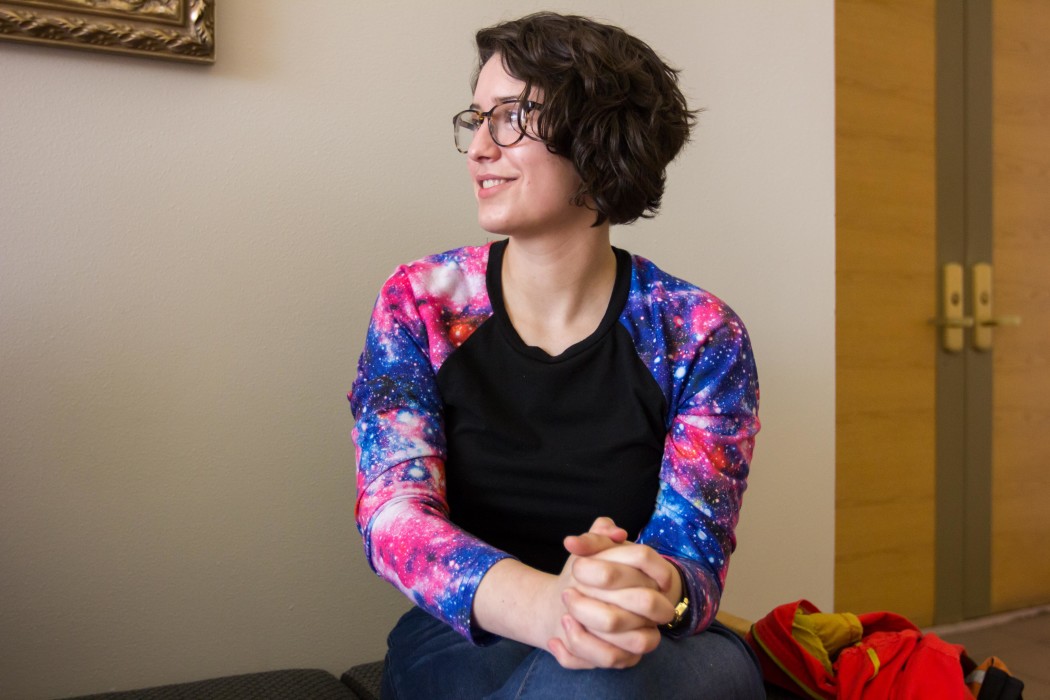Humans of USU: Video game culture stigmatizes women
According to the Daily Dot, adult women are now the largest video game demographic.
Madeline Smith, a sophomore in social work at Utah State University, weighs in on her experience with games, as well as feeling the pressure to validate herself to others as a woman in the gaming community.
Utah Statesman: What is your earliest memory playing video games?
Madeline Smith: I had cousins that had an N64, so whenever we’d go and visit them we’d play Mario Kart or Super Smash Brothers.
US: What have you been playing recently?
MS: Recently, I just bought “Witcher 2.” It’s pretty neat. I got it on sale, which is the only time that I’ll buy video games.
US: Was that a Steam sale, perchance?
MS: Yeah. [laughs] It was. And my brother bought “Dragon Age Inquisition,” and so I played that when I came home for Christmas and didn’t get to finish it because of time constraints. I like to play “Minecraft,” too. That one’s fun.
US: Do you think there’s a certain criteria that someone needs to meet to be considered a gamer?
MS: I think the criteria for being a gamer is stupid, so I would say no. I have a lot of problems with gaming culture because I feel like there’s a lot of stigma for women, especially. By all accounts, I would say that I am a gamer. I do play video games. I think that’s the only criteria that you need is that you play video games.
US: Do you ever feel like you’re put in a position where you have to prove your gaming credibility to people?
MS: I have a boy cousin that’s my age, and I felt like I used to have to prove it to him because he was a “hardcore gamer,” I guess. I think a lot of it was just chauvinistic and a little misogynistic. Usually it was to other males that I felt like I had to be like, “Yeah, but I play this game, or I do this.” Now I don’t really care. I play video games and it doesn’t matter because a lot of other people also play video games, and a lot of them are also women.
US: I heard that women are now officially the biggest gaming demographic.
MS: Yeah, I think I read somewhere that it was, like, over 50 percent of video games buyers are women. That’s what’s frustrating to me, that it’s marketed strictly to males and that it’s exclusionary for women.
US: In what ways have you noticed that gaming seems to be marketed to men?
MS: I play League of Legends, and I’m afraid to speak like a woman, because I think you get attacked for that. Or, like, “Oh, great. There’s a woman on our team, so we aren’t going to do as well. Clearly, because she’s a woman, she has no idea how to play.” Or a lot of the way that characters dress, I think, is what really gets to me. They’re really overly sexualized. On women, the armor isn’t realistic. The point of armor is to protect you.
US: What would you say to other girls who are under the impression that video games are just for guys?
MS: Can I address this to the women who are afraid to start playing video games, too? Statistically, you are not an anomaly. It’s not something that you need to be worried about. I used to be embarrassed to go to GameStop to buy games. I still don’t think that I’m treated very well there because I get talked down to a lot. But I would say stand up for yourself. Don’t bother proving yourself to people, because I think if they’re asking you to prove your gamer-ness to them, then they’re not really worth your time anyway. There are a lot of reasons why you could be doing it, and it doesn’t matter what your reason is as long as it’s justifiable and validating for you.
— whitney.howard@aggiemail.usu.edu
@omgwhitshutup

